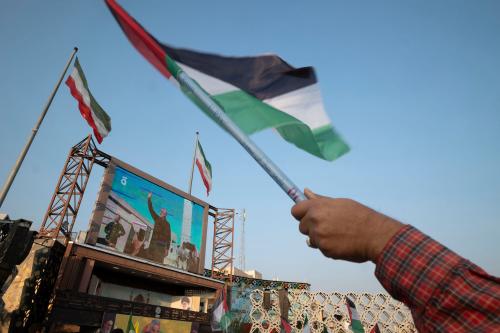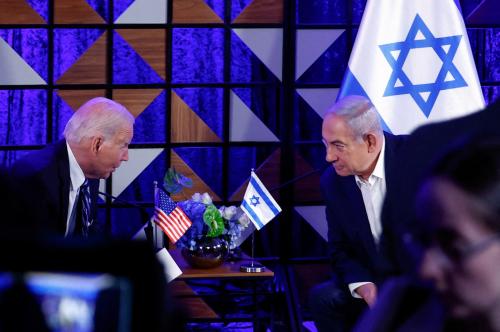Most critics of the Patriot Act accept that some restrictions on civil liberties are the norm in wartime. But American history offers numerous counterexamples. Wars have at least as often provided occasions for expanding as well as restricting civil liberties.
The Patriot Act is more about the inclinations of the Bush administration than about an American norm of behavior in times of national danger.
Constitutional lawyers and historians frequently tell stories about how civil rights are threatened in wartime. President Abraham Lincoln during the Civil War unilaterally imposed martial law in the North. Left-wing dissidents and aliens who opposed military intervention were persecuted during World War I. Japanese-Americans were forcibly removed to internment camps during World War II. The Cold War inspired McCarthyism.
These common stories present an incomplete picture of how military conflicts and tensions influence civil rights and liberties. Restrictive policies adopted during some wars are not adopted in others, even under similar circumstances.
The federal government repressed speech during the undeclared war with France in 1800, the Civil War, World War I and the Cold War, but not during the War of 1812, the Mexican War, the Spanish-American War and World War II.
From the beginning of the republic, military conflicts have inspired increased protection for civil rights and liberties. Members of Revolutionary War militias refused to fight until they were granted voting rights in their communities. Lincoln justified the Emancipation Proclamation as a military necessity. Woodrow Wilson in 1917 insisted that the threat of war justified extending the eight-hour day for workers, and in 1918 declared that women’s service during the war provided crucial grounds for passing the 19th Amendment.
The Supreme Court in 1943 ruled that government could not compel students to salute the flag, overruling its prewar decision just three years earlier.
Brown vs. Board of Education is the most famous instance of how military tensions inspire efforts to expand civil rights and liberties.
Such scholars as Derrick Bell, Mary L. Dudziak, Philip A. Klinkner and Rogers M. Smith have detailed the ways in which the Cold War was responsible for numerous racially liberal policies. Government officials regarded measures aimed at expanding African-American freedom as crucial to American struggles against the Soviet Union.
The Justice Department in Brown informed the justices that “racial discrimination in the United States remains a source of constant embarrassment to this government in the day-to-day conduct of its foreign relations,” and that it “jeopardizes the effective maintenance of [American] moral leadership of the free and democratic nations of the world.”
These numerous instances when civil rights were maintained or expanded during hot and cold wars belie the simple claim that war inevitably causes government officials to restrict individual rights. For every internment of the Japanese, there is an Emancipation Proclamation.
The more accurate assessment is that what administration officials do during a war depends largely on their predispositions before the war. Members of the Wilson administration had exhibited no solicitude for speech rights before the war and restricted those rights sharply during the war. Members of the Franklin D. Roosevelt administration, by comparison, were supportive of civil liberties before the war and regarded World War II as a vehicle for advancing more libertarian and egalitarian policies.
Civil liberties during the present war against terrorism fit this historical pattern. The Bush administration is restricting primarily those rights that the administration sought to limit before Sept. 11.
The Patriot Act and related administration actions are consistent with previous Bush administration efforts to increase the power of government agencies to investigate criminal activities, to limit the procedural rights of criminal suspects and to favor management over labor unions.
The Patriot Act contains several provisions whose impact is limited to ordinary domestic crime. The mass detention of foreign nationals merely carries to an extreme previous policies that vested aliens with fewer and fewer legal rights. When, as is the case with gun control, the Bush administration before the war aggressively supported the right in question, it has steadfastly declared that present military conditions do not justify intrusion into the constitutional rights of Americans.
Wars create opportunities to both increase and restrict freedom. The chosen course depends almost entirely on those in power—mostly in the White House. Present restrictions are a policy choice that reflects the general principles of the Bush administration, not an inevitable response to a military crisis.



Commentary
Op-edWar and Liberty
November 18, 2003